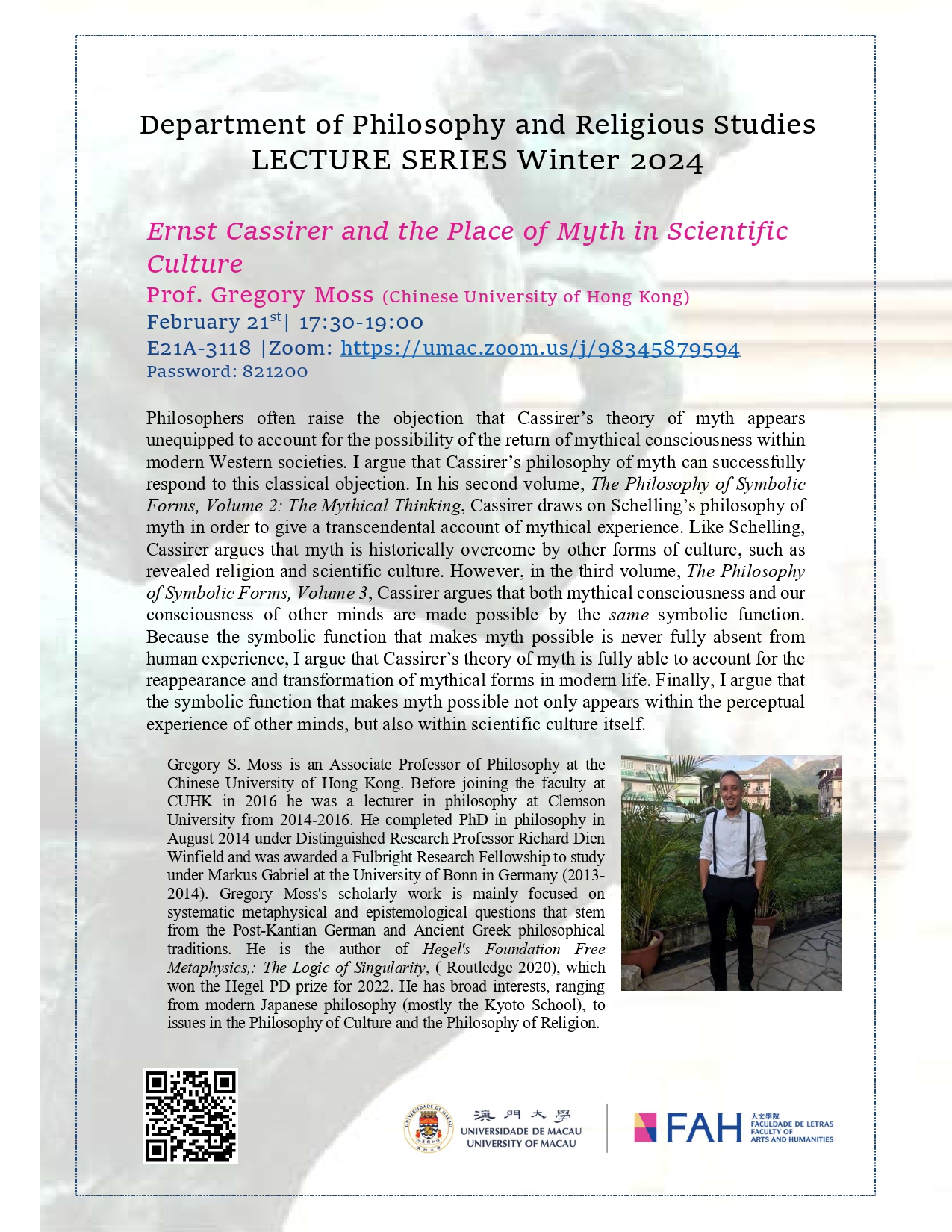

FAH/DPHIL Lecture Series – “Ernst Cassirer and the Place of Myth in Scientific Culture” by Prof. Gregory Moss, The Chinese University of Hong Kong, Hong Kong
2024-02-21 @ 5:30 pm ~ 7:00 pm
Zoom: https://umac.zoom.us/j/98345879594
Password: 821200
Abstract
Philosophers often raise the objection that Cassirer’s theory of myth appears unequipped to account for the possibility of the return of mythical consciousness within modern Western societies. I argue that Cassirer’s philosophy of myth can successfully respond to this classical objection. In his second volume, The Philosophy of Symbolic Forms, Volume 2: The Mythical Thinking, Cassirer draws on Schelling’s philosophy of myth in order to give a transcendental account of mythical experience. Like Schelling, Cassirer argues that myth is historically overcome by other forms of culture, such as revealed religion and scientific culture. However, in the third volume, The Philosophy of Symbolic Forms, Volume 3, Cassirer argues that both mythical consciousness and our consciousness of other minds are made possible by the same symbolic function. Because the symbolic function that makes myth possible is never fully absent from human experience, I argue that Cassirer’s theory of myth is fully able to account for the reappearance and transformation of mythical forms in modern life. Finally, I argue that the symbolic function that makes myth possible not only appears within the perceptual experience of other minds, but also within scientific culture itself.
Bio
Gregory S. Moss is an Associate Professor of Philosophy at the Chinese University of Hong Kong. Before joining the faculty at CUHK in 2016 he was a lecturer in philosophy at Clemson University from 2014-2016. He completed PhD in philosophy in August 2014 under Distinguished Research Professor Richard Dien Winfield and was awarded a Fulbright Research Fellowship to study under Markus Gabriel at the University of Bonn in Germany (2013-2014). Gregory Moss’s scholarly work is mainly focused on systematic metaphysical and epistemological questions that stem from the Post-Kantian German and Ancient Greek philosophical traditions. He is the author of Hegel’s Foundation Free Metaphysics,: The Logic of Singularity, ( Routledge 2020), which won the Hegel PD prize for 2022. He has broad interests, ranging from modern Japanese philosophy (mostly the Kyoto School), to issues in the Philosophy of Culture and the Philosophy of Religion.

